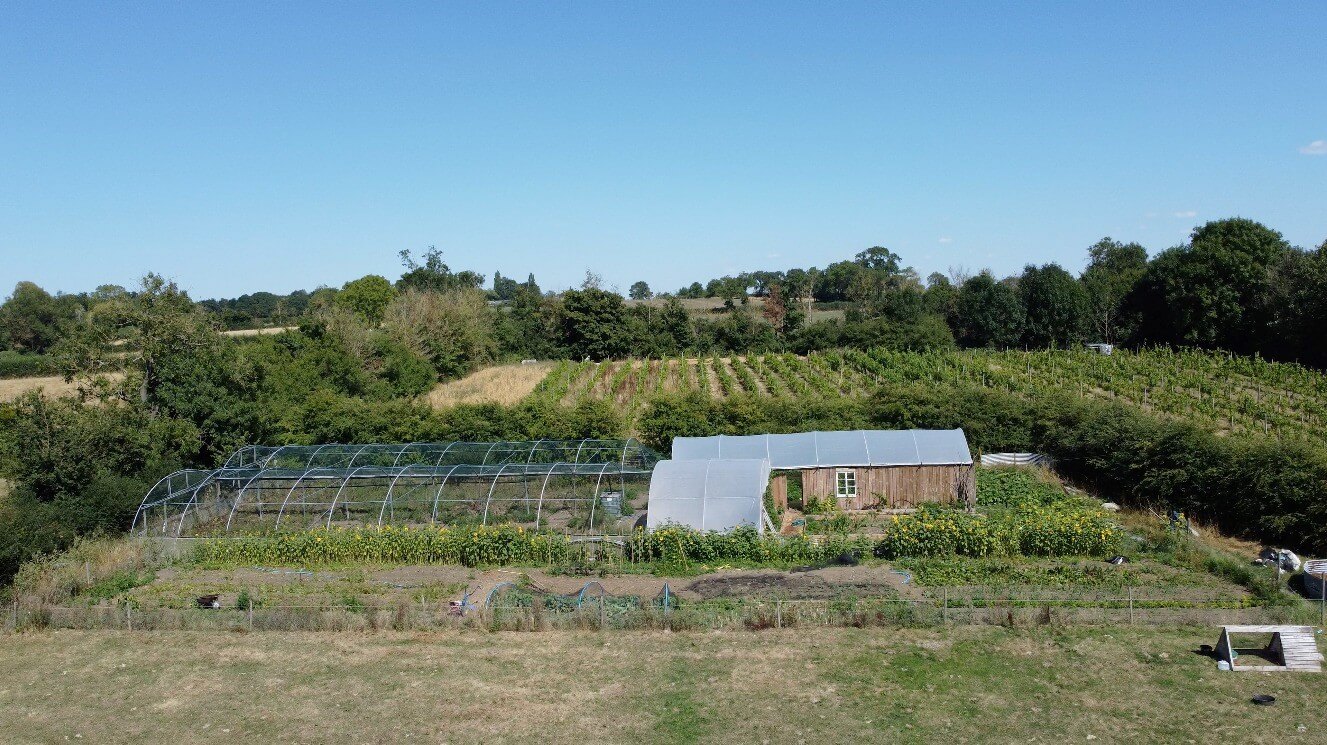My name is Max. I’m 58 and I live on a scruffy smallholding just outside Glastonbury. I left my job as a political reporter at the BBC ten years ago to live off the land. I wanted a plain pastoral existence that a chap like me in Saxon England would recognise for its stoic simplicity of purpose.
It didn’t really work out like that. Mainly it didn’t work out like that because living a simple subsistence farming life in 21st century Somerset is just a game. I was growing food for fun. None of it mattered because if I failed, say my cabbages all got eaten by caterpillars, then I could just go to Sainsbury’s. So living off the land was just pretend.
The Saxons were growing wheat and if they cocked it up then they might starve. Meaning and reason in a pastoral life comes from necessity. So I decided I would cut myself off from the modern world as far as food was concerned. I would only eat and drink what I could produce from my small farm and nothing else for a whole year. Nothing. No tea or coffee, no supper with friends, no pasties at the petrol station, not even any foraging in the village hedgerows.
I would have to produce everything or do without. I would allow myself two imports: salt and water. I had decided I wanted to test the idea of eating locally and seasonally to destruction.
I have come to love bread and dripping, I’m addicted to nettle tea and I have made a ketchup from leeks, vinegar, pork bones and frozen tomatoes that might one day make my fortune.
So, since September 2022, I have been living off the food I produce on my five-acre smallholding. Most of the land is taken up by a small vineyard I planted years ago. It’s not big enough to have as a business but we do make really exceptional rosé, which keeps my kids in booze and is a fabulous commodity to trade for labour. I have a cow, Brenda, a Friesian/Jersey cross who I hand-reared and she keeps me in gallons of milk for cheese-making and heaps of manure. Her calf we turn into beef at about 15 months. We try to feed our pigs on waste from the farm, which works well for about six months of the year, with skimmed milk and whey. I grow wheat for bread and potatoes, which I could not live without. I grow vegetables on an allotment-scale.
So far this year, I am just really looking forward to eating things from the garden. I am very excited about the first peas and am really looking forward to strawberries so I can make some strawberry and honey ice cream, no sugar. I could murder a nice woody pint but all my barley got eaten by rats. A cup of tea and a Bakewell tart would also be nice.
On the other hand, I won’t be drinking coffee again as I do not miss that churning fear in the pit of my stomach in the mornings and the idea of buying food in a supermarket is not something I ever really want to do again. I have come to love bread and dripping, I’m addicted to nettle tea and I have made a ketchup from leeks, vinegar, pork bones and frozen tomatoes that might one day make my fortune.
I have become completely embedded in it, almost like an around the world sailor, and I find it hard to imagine what landing this little boat will be like in September.
In many ways this project is a protest; a hunger strike. We live in a country where language is steeped in phrases from our agrarian past. ‘Separating the wheat from the chaff’, ‘making hay while the sun shines’, ‘ploughing our own furrows’: the list is endless. But we are completely detached from our food growing processes, which are themselves separated from our desperate and diminishing biosphere.
I think it’s Colin Tudge, co-founder of the Oxford Real Farming Conference, who says that farming needs to be a by-product of a healthy ecology and I guess that’s the mantra for my rather nutty year of 100 per cent food self-sufficiency. I am deep, deep into the project now with only four months to go. I have become completely embedded in it, almost like an around the world sailor, and I find it hard to imagine what landing this little boat will be like in September.
But most of all I have enjoyed belonging: belonging to a terrific club with about two billion members. What I am doing might be very odd in white middle-class Somerset. But according to the UN, a quarter of the world’s food is produced from subsistence farms smaller than mine. I have a glass of rosé beside me – so here’s to us.
You can follow Max’s journey via his YouTube channel, @NoMilkToday.










fab